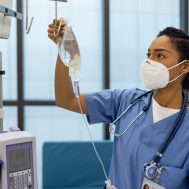When it comes to life-saving medical equipment, every detail counts. From the most advanced machinery to the simplest components, each part plays a crucial role in ensuring the efficacy of medical equipment and the safety of patients. Among these components, o-rings might seem small and insignificant. However, o-rings are one of the many tiny devices that silently ensure the seamless operation of critical devices that save lives every day. Read on to learn more.
The Unsung Heroes of Medical Equipment
O-rings are simple yet ingenious devices. These circular seals, typically made of rubber or elastomer materials, are designed to fit into the grooves of mating parts to prevent the leakage of fluids or gasses. While they may seem straightforward, their applications are remarkably diverse, spanning industries ranging from automotive and aerospace to electronics and, crucially, healthcare.
In medical equipment, where even the smallest malfunction can have life-threatening consequences, o-rings play a vital role in maintaining the integrity and functionality of various devices. Whether it’s a ventilator delivering life-sustaining oxygen to a patient or a syringe pump administering precise doses of medication, the performance of these devices relies on the reliability of their components, including o-rings.
The Apple Rubber Difference
Among the many manufacturers of o-rings, Apple Rubber stands out for its commitment to quality, precision, and innovation. With half a century of experience and a dedication to meeting the unique needs of the medical industry, Apple Rubber has earned a reputation as a trusted partner for medical equipment manufacturers worldwide.
One of the key factors that sets Apple Rubber o-rings apart is their material composition. In medical applications where compatibility with various fluids, chemicals, and sterilization methods is crucial, Apple Rubber offers a wide range of elastomers specifically formulated to meet these stringent requirements. Whether it’s silicone for biocompatibility and high-temperature resistance or fluorocarbon for exceptional chemical resistance, Apple Rubber provides o-rings tailored to the specific demands of medical devices.
Moreover, Apple Rubber’s commitment to quality assurance and regulatory compliance ensures that every o-ring material meets the highest standards for performance and safety. With testing to ISO 10993 and FDA USP <87> and <88>, customers can trust that Apple Rubber O-rings are manufactured with meticulous attention to detail and undergo rigorous testing to ensure reliability in the most critical healthcare environments.
Enhancing Performance, Ensuring Reliability
The impact of Apple Rubber o-rings on medical equipment performance goes beyond mere functionality. By providing seals that withstand the demanding conditions of healthcare settings, Apple Rubber enables medical device manufacturers to deliver products that healthcare professionals can rely on with confidence.
Consider the implications of a ventilator failure due to a faulty o-ring or a syringe pump malfunction caused by inadequate sealing. In critical care scenarios where every second counts, the reliability of medical equipment truly can mean the difference between life and death. By choosing Apple Rubber o-rings, manufacturers are not only ensuring the performance of their devices, but also contributing to the safety and well-being of patients worldwide.
Looking at the Future
As technology continues to advance and the demands on medical equipment evolve, the role of o-rings in healthcare will only become more critical. From wearable devices and implantable sensors to next-generation diagnostic tools and robotic surgery systems, the need for reliable sealing solutions will remain constant.
In this dynamic landscape, companies like Apple Rubber will continue to innovate, pushing the boundaries of material science and engineering to develop o-rings and seals that meet the ever-changing demands of the medical industry. By leveraging their expertise and commitment to excellence, Apple Rubber will play an essential role in shaping the future of healthcare, ensuring that medical equipment continues to save lives with uncompromising reliability and performance.
